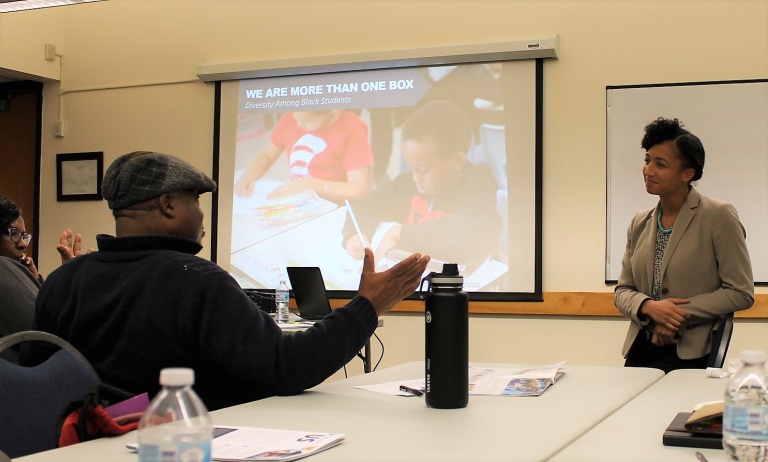The CCER data and research team continues to shift our approach from satellite data that capture high-level outcomes towards focusing our resources to support community practice partnerships and other initiatives that use street data methods to uplift data and stories from on-the-ground, lived student experiences. This kind of qualitative data can inform the quantitative data we collect to supplement and uplift these stories and ignite meaningful change. Our team does this through rigorous community-engaged research, data strategy and capacity building. Underlying these efforts is the CCER longitudinal education data warehouse that contains pre-kindergarten through postsecondary academic data for students in the Road Map Project region.
In the past we have focused heavily on student outcomes such as..

We know that to achieve these outcomes it is crucial that we focus on factors that impact student outcomes such as..
The research team partners directly with students and educators in school districts, post-secondary institutions and community-based organizations. We seek to understand their experiences within education systems and the various factors within school systems that influence their progress. We integrate Liberatory Data and Research principles in the work we do to challenge and disrupt white-dominant norms and power dynamics in all aspects of our work, including strategies, resources, relationships, approaches, analyses, evaluation, data stewardship, and impact.
The Community Center for Education Results (CCER) Data team supports community partnerships to drive racially equitable education system improvements within the Road Map Project region. The team develops and maintains system and student indicators, and shares these indicator results across a host of dashboards developed for practitioners, community partnerships, and the public. Across all data-related processes, CCER maintains strict data security practices to ensure student privacy is honored.
Schools gather data on students to fulfill institutional, state, and federal government requirements. This information ranges from the languages students speak at home to their performance on assessments. The purpose is to help teachers improve instruction, inform schools if students are on track to graduate, and advise state leaders on budget and policy decisions.
Even though data is collected from early learning through college, the information is rarely connected, making it difficult to follow long-term outcomes for students. And, all too often, data is used to tell students and families—instead of institutions and systems—what to do to improve achievement.
As a result, we have a lot of data on our students, but very little on the education system serving them.

The Community Center for Education Results, a nonprofit created to support the Road Map Project, developed and maintains a pre-kindergarten through college data warehouse that integrates information across the region. The warehouse also includes data on education systems, including learning environments, district practices, and local policies.
This compilation of data is not only unique to the Road Map Project region, but education databases in general. Rarely do parents, students, communities, school districts, municipalities, and local colleges have a common, accessible source of data and information.
CCER’s data and research team aims to illuminate how those responsible for our students’ education can better serve them. The team uses various data science and research methods and develops presentations, reporting tools, and papers—all driven by the recommendations, experiences, and perspectives of the Road Map Project region’s most-impacted communities.